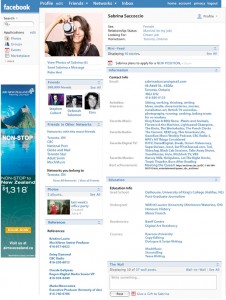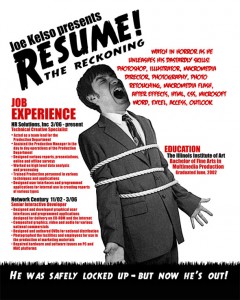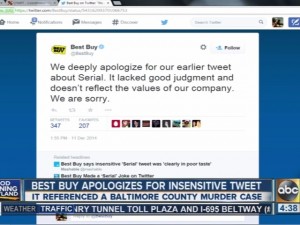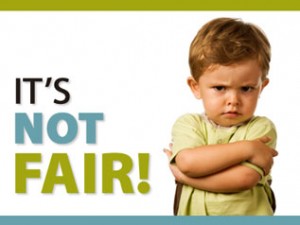Remember my presentation on Wednesday about modalities? I would like to think of this blog post as an extension of my PowerPoint presentation. Specifically, the way audiences’ reactions to modalities shift in various context and cultures. When we are ready to write our resumes, we must apply cognitive empathy. That is, we must put ourselves in our potential employers’ shoes in order to understand their thought processes when analyzing our resumes.
In my PowerPoint, I broke down employers into three very broad groups: general audience, specific audience, and international audience. General and international audiences would want traditional-style resumes because these have always been deemed professional, and thus, suitable for professional workplaces, such as law firms, investment banks, and government offices.
However, specific audiences are media-based employers like Facebook, film, or radio stations, whose audience is the public. Specific audiences do not like traditional resumes because they do not represent the progressive actions of the company, nor do traditional styles reflect their values in creativity and imagination. So, what should we give them? The examples below are alternative resumes that have landed job interviews. Click one for a closer look.
(Images: “13 Insanely Cool Resumes that Landed Interviews At Google And Other Top Jobs.” 2014. Web. Courtesy of Patricia Laya on Business Insider.)
What does this mean for us? It means that we need to be ready to create multiple styles of resumes in addition to our traditional resumes. Click here for more creative resume ideas to apply to your field.
My field is in English, so I can go into multiple positions for editing anywhere. If I were to go into menu design and editing, I would resemble my resume to a menu:
- Name of the restaurant: Your name and contact information
- Appetizers: Your objective/goal
- Tapas: Your skills
- Entrees: Your skills applied to experiences
- Sides: Your education and work history
- Desserts: Your awards, certificates, or licenses
If I were to go for a position at a greeting card company, I would use a bi-fold card as my resume template:
- Outside of card: Name, contact information, objective/goal
- Inside (left page): Skills and skills applied to experiences
- Inside (right page): Education/work history and awards/certificates/licenses
In addition to alternative resumes as a means of deviating from the crowd, there are a few other ways to distinguish you from others with similar backgrounds:
- Kill the buzz words, like “team player” or “detail-oriented.” Instead of using these adjectives, provide a concrete example of a project where you had to work with others. Also, show the employer that you are detail-oriented through your resume. Make sure you used correct grammar and that your spaces are parallel and words are aligned.
- Include your goals. People with similar backgrounds don’t necessarily have the same goals (Veritas Prep). Being able to articulate exactly why you need the job to achieve your goals is a strong tool.
- Avoid jargons associated with your field. Employers are subjected to the same words used in multiple resumes, which means they will be inclined to overlooking these words and consider it a poor use of space on resumes.
On the other hand, we need to keep in mind that these alternative resumes can be risky even within the specific audience. For example, I included an animated resume in my PowerPoint with background music that was far too fast-paced, and thereby, affecting the pace of the content in the video. Another example of the risks of alternative resumes is Greg Dizzia’s experience when his “resume became the actual interview.” An employer asked him “what would happen if this was black and white?” and from there he learned that his “resume itself was becoming a pivoting point in the negotiation of [his] position” and that “although he says he’s gotten mostly positive feedback, he says his resume has caused mixed reactions. It mostly depends on who you’re talking to[…]and he gets much better reactions from people in creative positions than people in HR” (Laya).
Other risky ways of representing yourself include social media profiles. We need to step back and ask ourselves not how do we want to portray ourselves, but rather as whom do we want to portray ourselves? This refers us back to my blog post last week about the lack of ethics in resumes and why it is okay.
I have never thought deeply about the image I want to portray on social media. After Brandin’s presentation on Wednesday about audience, I took his advice on what we should keep in mind when we have social media profiles:
- Likes/dislikes/following whom
- Memes that we share indicating racism, sexism, violence
- Grammar, homophones, apostrophes
- Photos/what is in the background of those photos
In a perfect world, we would want to create a neutral image for our employers. However, it is hard to tell who considers things negative or positive. Personally, regardless of what I want to be or for whom I want to work, I know that my degree will be in English. So, the image I want to create is a person with good grammar and coherent sentences. In addition, I “like” Grammarly on Facebook, and the “Books I’ve Read” section on my profile lists all of the classic novels I have read (even if I did not like them). These factors can work in my favor instead of being risks to my character.
So, when does it pay to be creative? Career coaches say that “it depends on where you’re applying to” (Laya).
Sources Cited
“Distinguishing Yourself in Your MBA Applications.” Veritas Prep. Web. 14 September 2014 <http://www.veritasprep.com/blog/2012/12/distinguishing-yourself/>.
Laya, Patricia. “13 Insanely Cool Resumes that Landed Interviews At Google And Other Top Jobs.” Business Insider. Web. 14 September 2014 <http://www.businessinsider.com/insanely-creative-resumes-2011-6?op=1>.






